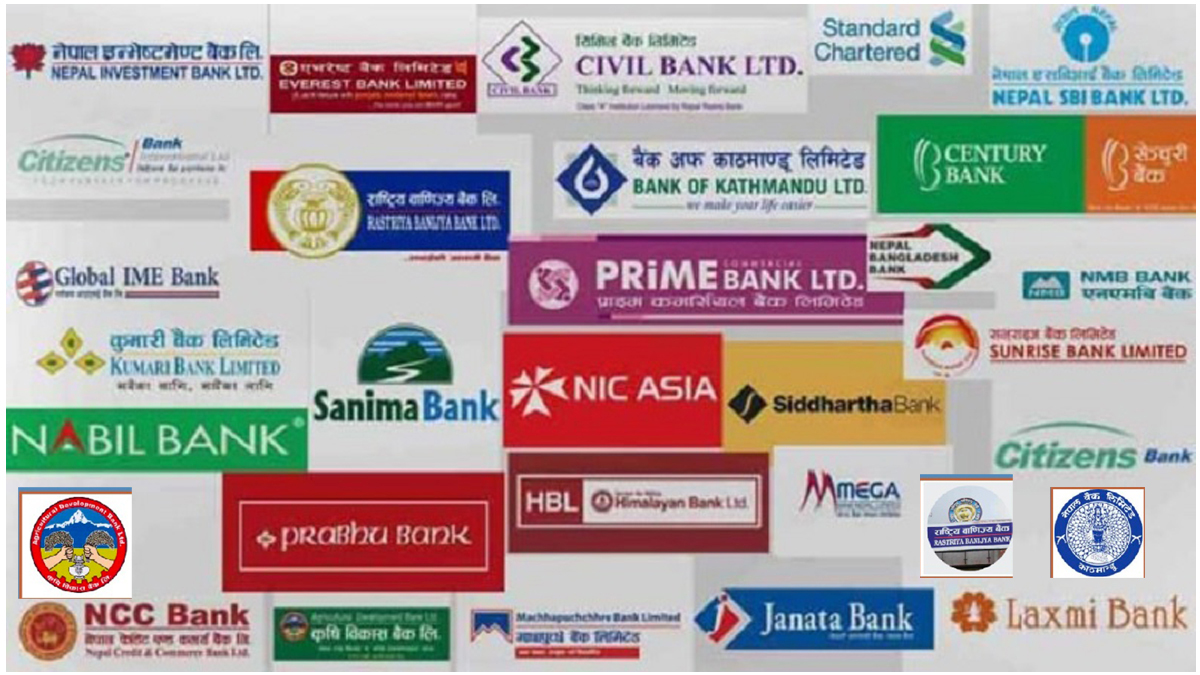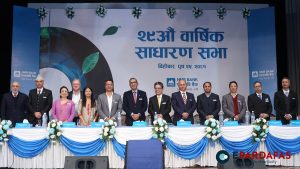
Commercial Banks Continue to Reduce Interest Rates Amid Increased Liquidity

In line with recent trends, commercial banks in Nepal are persisting with their downward trajectory on interest rates, citing a surge in liquidity over recent months.
During the month of Magh (mid-January to mid-February), banks had been offering interest rates hovering around 9 percent. However, for the upcoming month of Falgun (mid-February to mid-March), these same banks have announced a maximum interest rate of 8.5 percent for personal term deposits. The average interest rate, which averaged at 8.16 percent in Magh, is anticipated to decrease to 7.75 percent in Falgun.
This reflects a notable reduction of 0.40 percentage points in the average interest rate from Magh to Falgun. The cut in maximum interest rates for personal term deposits varies from 0.06 percent to 0.81 percent.
The adjustment in interest rates coincides with reports from banks indicating an upsurge in investable capital, attributed to a slower-than-expected growth in loans despite a rise in deposits. This surplus in investable funds has prompted banks to steadily lower interest rates in recent times.
Among the key players, Everest, Laxmi Sunrise, Machhapuchhre, and Himalayan Bank have opted to maintain their interest rates for Falgun, while other banks have opted for adjustments.
NMB Bank leads with the highest interest rate for Falgun, offering 8.50 percent. Other notable rates include a minimum of 8 percent for fixed deposits. Furthermore, Kumari Bank and Nepal SBI Bank are offering 8.1 percent, while Citizens Bank’s rate exceeds 8.25 percent.
Conversely, Nabil Bank offers 7.75 percent, Prabhu Bank 7.50 percent, Nepal Bank 7.25 percent, Standard Chartered Bank and Rastriya Banijya Bank both at 7.35 percent, Prime Commercial Bank at 7.40 percent, Sanima Bank at 7.51 percent, Global IME Bank at 7.60 percent, and Agricultural Development Bank at 6.44 percent.
These revised interest rates are slated to take effect from February 13.












Comments